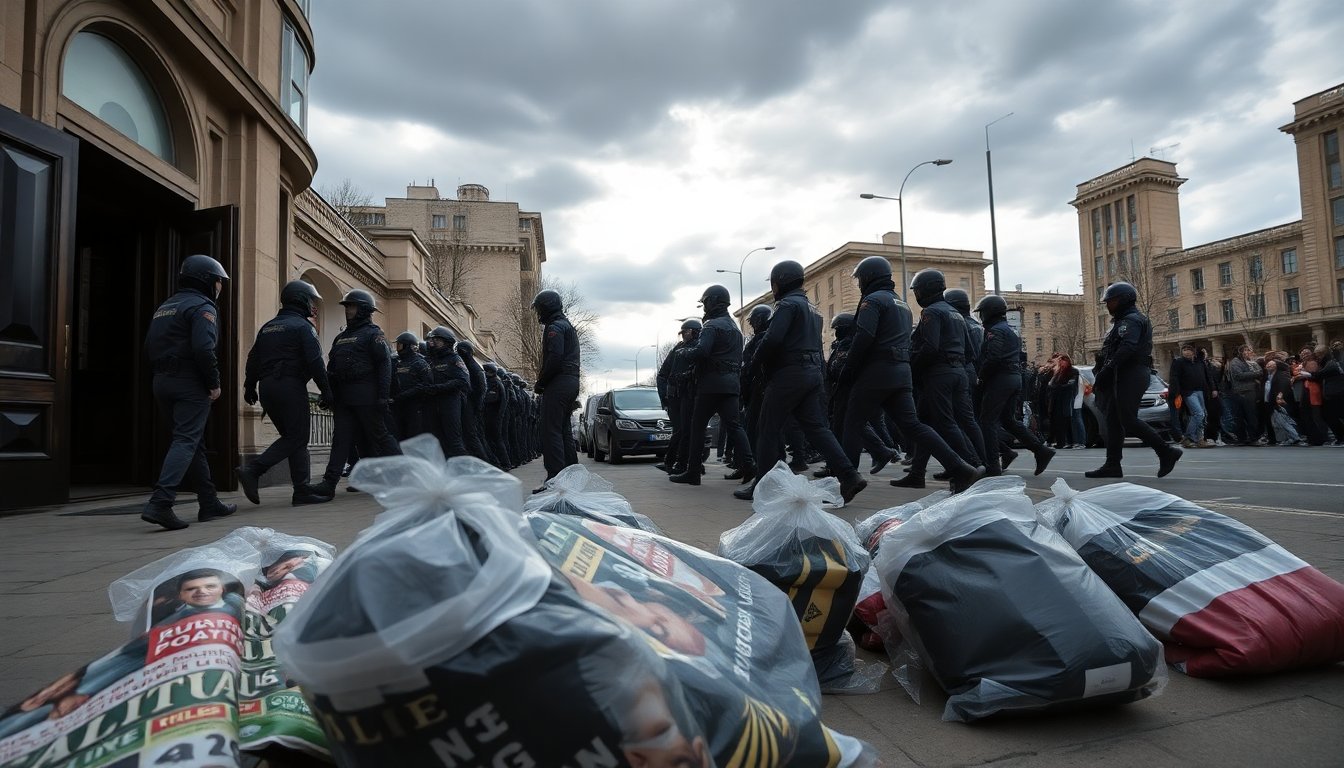Table of Contents
Amid rising tensions in Eastern Europe, Moldova has emerged as the focal point of a significant political crisis. Following a series of police operations on Monday, authorities detained at least 74 individuals linked to an alleged conspiracy to incite mass unrest in the country. President Maia Sandu has accused Moscow of attempting to influence the outcome of the upcoming parliamentary elections.
The Moldovan police reported executing over 250 raids nationwide, targeting individuals purportedly involved in preparations for destabilization efforts. The police stated that these actions were allegedly coordinated by criminal groups operating from the Russian Federation.
Details of the Arrests and Allegations of Russian Interference
The arrested individuals ranged in age from 19 to 45, as disclosed by Victor Furtuna, a prominent Moldovan prosecutor. He further revealed that many suspects had received training in Serbia, raising concerns about foreign influence in Moldova. Sandu characterized these elections as the most critical in the nation’s history and has leveled serious accusations against the Kremlin.
According to President Sandu, “Hundreds of millions of euros” are allegedly being funneled into Moldova to sway electoral outcomes. She emphasized that the population is being inundated with misinformation and that there are individuals financially incentivized to create chaos and fear. “We must not allow foreign interests to take control of our country,” she asserted.
International Reactions and Broader Implications
The Kremlin has consistently denied involvement in Moldova’s internal affairs; however, the accusations resonate amid broader regional concerns. Similar claims of interference have emerged regarding Russia’s involvement in Romanian politics, where far-right politician Calin Georgescu faced allegations of Russian meddling in his presidential campaign.
Sandu’s party, the Party of Action and Solidarity (PAS), seeks to frame these elections as pivotal not only for Moldova but for Europe as a whole. The president cautioned that a government aligned with pro-Russian sentiments could turn Moldova into a platform for hybrid attacks on the European Union, highlighting the potential geopolitical ramifications of the elections.
Pre-Election Landscape and Voter Sentiment
In light of widespread allegations regarding Russian interference, Western leaders from Germany, France, and Poland have recently visited Moldova, which formally applied for EU membership in 2022 amidst the backdrop of Russia’s full-scale invasion of Ukraine. Despite leading in many pre-election polls, analysts predict a potentially close electoral battle.
The opposition, led by the pro-Russian Patriotic bloc, aims to connect with the electorate’s concerns over economic hardships and unmet reform commitments. Igor Dodon, a former president and joint leader of the Patriotic bloc, claimed that the government’s recent police actions are attempts to instill fear and silence dissent, asserting that some of their members were targeted during the raids.
The Role of the Moldovan Diaspora
With an estimated one million Moldovans living abroad, the diaspora’s influence on the electoral process could be substantial. During last year’s presidential runoff, a record 300,000 Moldovans from overseas participated in the voting, playing a crucial role in Sandu’s re-election in a nation with a population of merely 2.4 million.
As the elections approach, the political climate remains charged, with tensions rising as both the government and opposition prepare for a confrontation that extends beyond mere votes. As Moldova stands at this critical juncture, the implications of foreign influence and domestic stability loom large.


